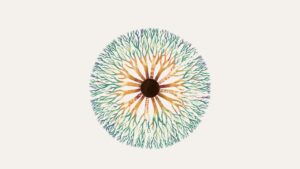A new trend in Spain has unfolded over the last year where media and police are making an association between “ayahuasca” and “cults.” As a result, the Spanish police intervened in various ceremonies in the span of months, involving yopo (psychoactive snuff) and ayahuasca. Both raids were carried out by the anti-cult department of the national police force (Policía Nacional), which highlights a disturbing new trend in Spain. In addition, the National Guard (Guardia Civil) employed “Operation Kambo” and detained two British citizens in Murcia for facilitating ayahuasca ceremonies on January 11, 2023. Identical operations took place in February in Santa Lucía de Tijarana (Gran Canaria) and at the end of March in Sant Pol de Mar.
It is important to acknowledge that there may be, at times, situations with ayahuasca and/or other ethnobotanicals that do not follow good practices. There are also instances where people may experience abuse that would require authorities to get involved, such as in the case of a sexual assault.
However, the current situation is troubling because biased and sensationalistic statements are being made by police and the media. These repressive tactics impinge on human rights and religious freedom. These actions only increase the risks to public health by driving these practices underground and blocking a coordinated effort with the communities involved in regulation.
Calling groups of people who gather in an ayahuasca ceremony “cults” without an adequate foundation for these accusations is worrying in a country where legal precedents have not criminalized these practices. This trend may soon pop up in other jurisdictions, such as France or Belgium — two countries with strong anti-cult legislation.
Public Cases: Giving Regional Context
On October 5, 2022, the police were called to a yopo ceremony being held in Asturias (northern Spain) and arrested four people. Around 50 agents from the specialized anti-cult group of the National Police were deployed from Madrid after receiving an anonymous complaint via email. The Ministry of Interior Affairs (the department responsible for national security) issued a press release stating the group practiced “rituals directed in a messianic manner by the alleged superior powers of the spiritual leader.” The press release was reprinted by several media outlets without changing many details. Some places even shared the recorded police video that exposed the use of force during the ceremony raid.
On November 5, a second police intervention occurred during an ayahuasca retreat in Berguedá (Barcelona). Two plainclothes officers infiltrated the ceremony and arrested the organizers, who have since been released. The operation was also spearheaded by the same anti-cult police task force that claimed to have received an anonymous email tip.
It remains unclear as to what basis the police had to suspect the detainees were part of a cult. The press department of the Ministry of Interior Affairs was repeatedly contacted but no response was received. It will be up to the judges to decide whether any illegal activities took place during these ceremonies to justify police intervention and the use of force. For the time being, the case in Asturias has already been closed.
What Exactly is a Cult? The Coercive Factor
Joan Prat, a professor of Social Anthropology at the Universitat Rovira i Virgili and an expert in religious cults, has lived with several so-called cults and has written various books on the subject. He explained that the label “cult” denotes “a problem with legitimacy. A church is a legitimate institution, whereas a cult is not socially legitimate.” This is the first meaning of “cult” in the RAE Dictionary, “A religious or ideological doctrine that departs from what is considered orthodox.” For example, Christianity is a religion. But it was considered a cult for four centuries until Emperor Constantine adopted it as the Roman Empire’s official religion.
One of the key elements used by academics and jurists to classify a religious or spiritual group as a cult is the element of coercion. This refers to the ability of the leader or the group as a whole to force members to perform certain actions or prevent them from leaving.
Prat points out that “cults” refers to a minority spiritual group that “departs from orthodoxy,” according to the dictionary definition. There is, however, a specific category for “destructive cults” where the leader exercises absolute power over their followers. The difference between “cult” and “destructive cult” is crucial since the latter involves criminal behavior.
What are the warning signs that classify a cult as destructive? Anthropologist Betty Sanchez Sarmiento was a part of the Carare Peace Community of Beautiful Thought (CPCPB) which was led by the neo-shaman Edgar Orlando Gaitán for a decade. Sánchez’s case study describes some of the sectarian characteristics of this group, namely: a rigid hierarchy, attribution of supernatural powers to the neo-shaman, the ritualization of daily acts, self-administered justice, punishment, rituals of public scrutiny, and the idealization of Indigenous cultures to legitimize practices. This also includes the leader’s ability to have sexual access to the women of the group.
Is Ayahuasca Used by Cults?
Can ayahuasca serve as the foundation for starting or leading a cult? “You don’t need ayahuasca to set up a cult,” explains psychologist Manuel Villaescusa, co-founder of the Plantaforma para la Defensa de la Ayahuasca. “Ayahuasca can be used for brainwashing. But the vast majority of the plant’s uses have been ethical and benevolent. There are no known sectarian movements around ayahuasca, aside from isolated, high-profile cases.”
The most well-known case was that of the previously mentioned Édgar Orlando Gaitán. He led a cult around the consumption of yagé (an ayahuasca preparation), tobacco, and coca in several cities in Colombia from the mid-1990s until 2015. At its peak, more than 500 people belonged to the group. It had (and has) branches in Mexico, Germany, and Spain.
In 2019, a Colombian court sentenced Gaitán to 29 years in prison for sexually abusing four women. However, the number of victims may reach into the dozens according to Betty Sánchez, who fell under Gaitán’s spell and was an active part of the cult for a decade. Sanchez left the CPCPB in 2015. Since then, she has been a key player in the trial of Gaitán. She has written a revealing anthropological study on the submission tactics he used.
The Gaitán case highlights an example of when ayahuasca was used in conjunction with cult practices. It is crucial to note that ayahuasca wasn’t the reason that the cult existed. It was rather an excuse to weaponize ayahuasca and enforce abuses of power. In this sense, the misuse of ayahuasca was just a part of the coercive tactics used by the CPCPB. If ayahuasca was taken out of the equation, the group would still be considered a cult.
Cults as an Excuse
Police intervention during a ceremony is rare and has not happened in Spain since 2009. ICEERS’ Ayahuasca Defense Fund (ADF) fears that the latest raids could set a precedent as a way to bypass Spanish drug legislation. Mexican lawyer Natalia Rebollo, ADF Coordinator, stated, “Until now, the arrests took place at airports of people traveling with their medicines. But with this approach, there is a certain interest for the State to intervene, which is very worrying to me.” Rebollo added, “The authorities tend to believe that ayahuasca and these plants pose a risk to public health. But what is really at risk in an intervention such as this is the health of participants.”
“On the other hand, this is a flagrant violation of human rights because there is a freedom of religion and conscience that is protected by Spanish law,” she continued. “Dozens of court rulings in Spain indicate that ayahuasca is not a controlled substance.” The same applies to the yopo seized during the ceremony raid in Asturias.
The psychologist Villaescusa added, “Cult criminal activities have legislation to prevent and address these behaviors. What happens in these cases is that legislation against cults is used to repress activities that are not following the authorities’ idea of what is right.”
The Case of the Santo Daime in France
France is the most restrictive European country when it comes to drugs, and ayahuasca is no exception. In 1999, French police raided a Santo Daime ceremony being held at the home of Claude Bauchet on the outskirts of Paris. Six people were arrested and accused of “drug trafficking” and “criminal association.” They spent three weeks in prison.
Natalia Rebollo of the ADF explained that France has specific laws on cults to preserve the secularity of the country. “It uses this law to classify the Santo Daime as a cult based on very arbitrary arguments,” she said. Adding ayahuasca to the list of prohibited substances ignores the International Narcotics Control Board (INCB) reports recognizing the Santo Daime as an accredited religion in Brazil, the USA, and Spain. “There are Santo Daime churches across the whole world,” Rebollo reported.
Bauchet and five other members of this chapter of the Brazilian Santo Daime church were given four to ten-month sentences for drug trafficking in 2003. However, the Paris Court of Appeal overturned the sentence in 2005 and demanded that the ayahuasca (known as daime) seized during the bust be returned. The case took a new turn just three months later when the French government outlawed ayahuasca, making it the first country in the world to ban the Amazonian brew.
Claude Bauchet is currently awaiting trial on the 1999 charges for drug use and international drug trafficking. However, ayahuasca is now classified as a drug in France and Bauchet faces a ten-year prison sentence. Italy has recently followed the same path and has scheduled ayahuasca. One of the concerns with the recent crackdown in Spain is that the country’s policy may also turn towards a similar prohibitionist approach.
As a Corollary
The latest police interventions in Spain suggest protocols that are intended to intimidate ayahuasca ceremony holders. However, the law has not changed. Ayahuasca was not and is not controlled. There have been more than 50 acquittals in trials involving ayahuasca across the country. Equating ayahuasca with cults is also an insult to the more than 100 Indigenous communities defending their territories from extractivism and violence in the Amazon Basin, for whom ayahuasca is a sacred, keystone medicine and pillar of their way of life.
“Disproportionate law enforcement interventions on ceremonial ayahuasca practices directly contradict the United Nations International Guidelines on Human Rights and Drug Policy,” says Constanza Sánchez, the Law, Policy and Human Rights Director at ICEERS. Ceremonial ayahuasca practices have been happening in Spain for over 30 years without posing a public health issue. Protecting public health also involves ending the plant medicine prosecution to ensure the rights of all communities involved. This includes a coordinated strategy in collaboration with the health authorities, expert NGO, and the community at large to implement regulation and harm reduction strategies. This will create the ability to properly monitor safety and ethics based on a clear regulatory framework. (For more information on these discourses, visit the International Guidelines on Human Rights and Drug Policy report here).
In summary, the ongoing trend in Spain where the media and police are associating the use of ayahuasca with “cults” is troubling as it impinges on human rights and religious freedom. The anti-cult department of the national police force in Spain labels plant medicine facilitators as “cult” leaders without adequate foundation, ignoring current evidence and following biased and incomplete information from sensationalist media. Additionally, ayahuasca is not a controlled substance in Spain. These actions are setting unjust precedents and creating rocky foundations for sensible policy practices relating to plant medicine. It is essential that authorities be vigilant of any potential abuse in these ceremonies but also not to jump to conclusions and make sweeping generalizations that criminalize these ancestral ethnobotanical practices.
Resources: Ayahuasca & Cults
- Press release from the Ministry of the Interior on Operation Bunachi in Langreo (Asturias)
- ‘What is yopo? ‘, Greatist, 2011.
- Hallucinogens and indigenous societies of northwestern Argentina’. Pérez Gollan, J. A., & Gordillo, I. (2010). Anales de Antropología.
- ‘Destructive cults: definition, characteristics and dangers’, Mauricio Sánchez for Mente y Ciencia.
- ‘Fake shaman accused of sexually assaulting dozens of women in Colombia sentenced to 29 years in prison, Europa Press, 20 December 2019.
- “Banning ayahuasca is also an attack on religious freedom,” Plantaforma, April 11, 2022.
- ‘Les adeptes francais du Santo Daime absous’, Libération, January 14, 2005.
- Ayahuasca Made Illegal in France After a French Court Rules in Favor of Santo Daime Church’, Ayahuasca Timeline, Kahpi.
- Legal treatment of sects in Spain’, Juan Goti Ordeñana, University of Valladolid.
- ‘Italy’s recent decision to ban ayahausca’, ICEERS, 22 April 2022.
- International Guidelines on Human Rights and Drug Policy | United Nations Development Programme
Photo by Jametlene Reskp on Unsplash.



